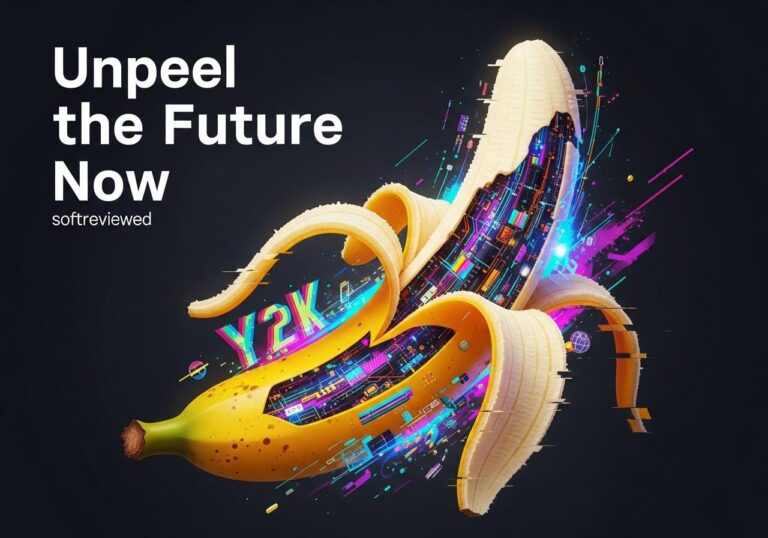🍌 Nano Banana Unpeeled: Google’s Next-Gen AI Image Editor
Discover how Google’s latest AI-powered image editing technology is revolutionizing photo enhancement with lightweight, on-device intelligence.
🤏 Nano Banana: Lightweight AI Model
Google’s new “Nano Banana” image model is optimized for on-device processing, bringing powerful AI editing capabilities directly to your Pixel device without requiring cloud processing or compromising on speed.
✨ Reimagine Feature: Text-to-Edit Magic
Transform your photos with simple text prompts – change a “gloomy sky” to “clear blue skies” or turn a “plain background” into a “vibrant sunset” with natural-looking results that blend seamlessly with your original image.
🔄 GEMPIX Platform Integration
Experience the power of Google’s GEMPIX technology across the entire ecosystem, from Google Photos to the Gemini app, creating a unified and intuitive image generation and editing experience wherever you use Google services.
👆 One-Tap AI Enhancement
Say goodbye to complex editing workflows – AI-powered suggestions combine multiple sophisticated effects into single-tap improvements that instantly enhance lighting, color balance, and composition based on the specific content of your photo.
🖼️ Auto Frame Intelligence
The AI analyzes your photos to suggest optimal framing through intelligent cropping, widening, or generative fill to complete scenes. It can even extend the edges of your photos to create more balanced compositions or reveal more of the scene.
📱 Cross-Platform Rollout
These groundbreaking features are launching first on Android devices, followed by iOS, with special integration planned for the upcoming Pixel event on August 20th. Google is bringing professional-grade editing tools to everyone, regardless of device.
Powered by Google AI • Coming to your device soon
Discovering Nano Banana’s Magic: A New Era of AI Image Editing
Editing images often feels like a puzzle—layers, masks, and technical jargon can slow down creativity. Nano Banana changes that by letting you type what you want and watching the AI do the heavy lifting. In this article, you’ll learn what Nano Banana is, how it evolved, and when it shines (and when it might stumble). With its user-friendly interface, Nano Banana democratizes image editing, making it accessible to both novices and seasoned artists alike. As you explore its capabilities, you’ll find it valuable to consider how it stacks up in an ai image editor comparison, particularly against other popular tools in the market. Whether you’re enhancing photos or creating artwork from scratch, Nano Banana aims to elevate your creative process without the usual hassles.
From Code Name to Cutting-Edge: Nano Banana’s Origins
Google’s history of fruit-based codenames hints at Nano Banana’s roots in the Imagen and Gemini research families. First spotted in sandbox tests on LMArena’s Image Edit Arena, Nano Banana blends vision-language transformers with a stable-diffusion-like core. Early developer notes describe:
➡️ Text-aligned visual encoders that map words to pixels
➡️ Multi-pass refinement for clean, consistent edits
➡️ Invisible provenance signals for authenticity
Speak, Don’t Mask: How Nano Banana Understands Your Intent
Traditional editors rely on manual masks. Nano Banana uses natural-language guidance instead:
- 📌 “Swap the sky for a neon cityscape”
- 📌 “Soften the shadows on the left face”
- 📌 “Add a drop shadow under the vase”
Behind the scenes, its multimodal encoder spots relevant regions and applies changes without extra steps. No more painstaking masking or layer management—just clear instructions.
Why Creators Are Excited (and Cautious)

✅ Effortless Edits: Anyone can tackle professional retouching.
✅ Iterative Workflow: Chain multiple prompts while preserving consistency.
✅ Accessibility Boost: Non-designers can shape visuals with words.
⛔️ Limited Preview: Currently invite-only on platforms like LMArena.
⛔️ Complex Scenes: Intricate overlapping objects can confuse the model.
⛔️ Policy Filters: Safety checks sometimes reject benign creative prompts.
Real-World Use Cases: From Marketing to Memoirs
Consider an e-commerce brand swapping backgrounds across product shots without hiring a retoucher. Or a travel blogger changing skies for seasonal themes with a single command. Nano Banana excels at:
- Background replacements for catalogs
- Consistent character art for comics
- Quick concept mockups in presentations
Expert Insight: A Glimpse into AI Ethics
Dr. Priya Rao of Google Research notes that embedding invisible provenance signals “ensures accountability when AI edits reshape reality.” As image AI grows, transparent markers help balance innovation with trust.
Side-by-Side Comparison: Nano Banana vs. Traditional Tools
| Feature | Nano Banana | Photoshop |
|---|---|---|
| Editing Method | Text prompts | Manual masks and layers |
| Ease of Use | High ― natural language | Moderate ― learning curve |
| Iterative Consistency | Preserved across prompts | Requires manual alignment |
| Accessibility | Broad ― no design background needed | Design experience recommended |
| Provenance Signals | Embedded and invisible | None by default |
Wrapping Up: Peeling Back the Benefits
Nano Banana represents a shift toward conversational image editing. By removing technical barriers, it unlocks creativity for all skill levels. While it’s still in a limited preview phase, its potential for speeding up workflows and democratizing design is clear. If you want to shape visuals with words instead of tools, keep an eye on Nano Banana’s public release.







